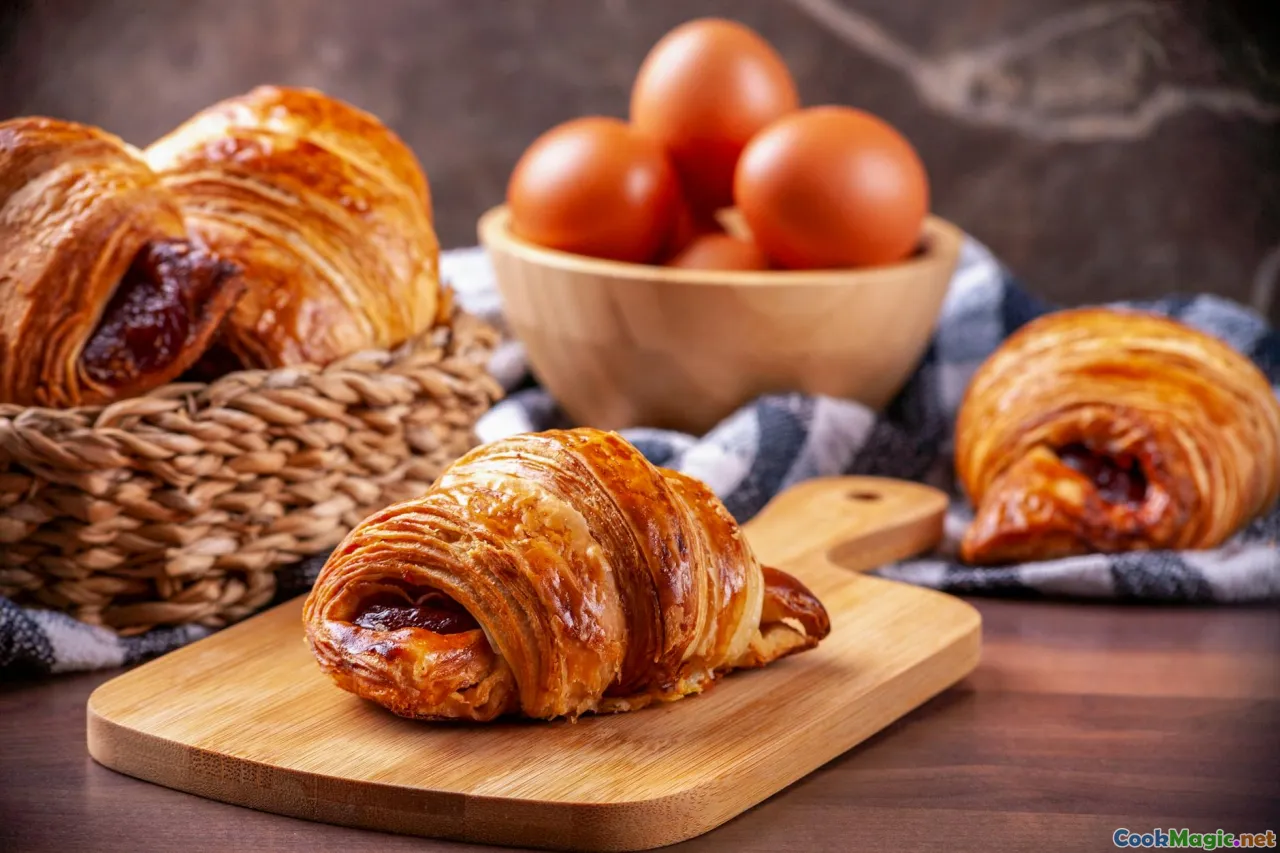Pairing Classic French Pastries with Thai Ingredients
7 min read Discover the art of blending French pastries with vibrant Thai ingredients, creating a symphony of flavors that excite the senses and redefine culinary boundaries. April 29, 2025 16:00
Pairing Classic French Pastries with Thai Ingredients
Imagine biting into a flaky, buttery croissant, only to be surprised by a burst of aromatic Thai basil and a hint of spicy chili. Or savoring a delicate éclair infused with the sweet, tangy notes of tamarind and coconut. This is the magic that happens when two culinary worlds collide—French pastries, renowned for their finesse and elegance, meet the bold, vibrant flavors of Thai ingredients.
The Allure of Fusion: Bridging Cultures Through Food
Food is a universal language, a way to tell stories, evoke memories, and forge connections across cultures. French pâtisserie tradition—think croissants, éclairs, tarts—embodies centuries of refinement, precision, and artistry. In contrast, Thai cuisine celebrates boldness, balancing sweet, sour, salty, and spicy elements in a symphony that excites the palate.
The idea of pairing these seemingly disparate worlds is not merely about novelty; it’s about expanding our culinary horizons, challenging preconceived notions of what certain dishes can be, and creating new sensory experiences. For adventurous eaters, it’s an invitation to explore the nuanced dance between the rich butteriness of French pastries and the complex, layered flavors of Thai ingredients.
A Brief Culinary Journey: French Pastries and Their Cultural Significance
French pastries are a testament to centuries of baking mastery. Croissants, with their flaky layers and buttery aroma, originate from Austria but have become a symbol of French bakery culture. Éclairs, filled with silky pastry cream and glazed with chocolate, showcase the French mastery of choux pastry.
Tarts like the tarte aux pommes or lemon tart exemplify the French love for harmonious flavor combinations and artistic presentation. Each pastry carries a story—whether of regional tradition, seasonal bounty, or culinary innovation.
Thai Ingredients: A Palette of Bold Flavors
Thailand's culinary landscape is renowned for its vibrant, multi-layered flavors. Fresh herbs like Thai basil, lemongrass, and cilantro bring fragrant freshness. Spicy elements like bird’s eye chili and galangal add heat and pungency. Sour notes from tamarind and lime, combined with sweetness from palm sugar and coconut milk, create a complex flavor profile that is both invigorating and comforting.
The use of these ingredients in traditional dishes like Pad Thai, Tom Yum soup, and Green Curry demonstrates a mastery of balancing intensity with harmony—a principle that aligns beautifully with pastry art.
Creative Pairings: How to Fuse French and Thai Flavors
1. Coconut and Pandan Éclair
Transform the classic éclair by infusing the pastry cream with coconut milk and pandan extract. The result is a lush, fragrant filling reminiscent of Thai sticky rice desserts. Top with a glossy coconut glaze and a sprinkle of toasted sesame seeds for added texture.
2. Lemongrass and Lime Tart
Replace traditional lemon curd with a tangy lime and lemongrass filling. Use a buttery shortcrust pastry as the base, and garnish with thin slices of kaffir lime leaves and edible flowers for visual appeal. This tart offers a refreshing, aromatic twist that awakens the senses.
3. Spiced Mango Mille-Feuille
Layer crisp puff pastry with mango compote infused with Thai chili and a hint of ginger. Add a light mascarpone or crema made with coconut cream to balance the spice. Finish with a drizzle of honey and a sprinkle of toasted coconut flakes.
4. Thai Basil and Honey Croissant
Incorporate chopped Thai basil leaves and a drizzle of honey into the classic croissant dough before baking. The herbal aroma combined with the sweet glaze creates a fragrant, savory-sweet pastry that pairs beautifully with a cup of jasmine tea.
Personal Insights and Tips for Home Cooks
Experimenting with fusion flavors requires an open mind and a willingness to balance contrasting elements. Here are some tips:
- Start Small: Add Thai ingredients gradually to classic recipes to find the right balance.
- Use Fresh Herbs: Thai basil, cilantro, and mint are best when fresh, providing vibrant flavor and aroma.
- Balance Spiciness: If adding chili, consider adjusting sweetness or acidity to prevent overpowering the pastry.
- Presentation Matters: Use edible flowers, microgreens, and colorful garnishes to enhance visual appeal.
The Future of Fusion Pastry Art
As global culinary boundaries continue to blur, the pairing of French pastries with Thai ingredients exemplifies the exciting possibilities of modern gastronomy. Chefs and home cooks alike are embracing this cross-cultural approach, creating dishes that are not only delicious but also rich in story and cultural significance.
In a world where borders are becoming more fluid, food remains one of our most powerful tools for connection. By blending the elegance of French pastry techniques with the bold vibrancy of Thai flavors, we craft a new culinary language—one that celebrates diversity, creativity, and the joy of discovery.
Final Thoughts
The next time you indulge in a buttery croissant or a delicate tart, consider elevating it with a splash of Thai coconut, a hint of lemongrass, or a dash of chili. These unexpected pairings open a portal to a world where tradition meets innovation, and every bite becomes a story worth savoring.
Embrace the fusion, experiment boldly, and let your taste buds embark on this delicious adventure—a harmonious dance of cultures that delights and inspires.
Happy cooking and even happier tasting!









